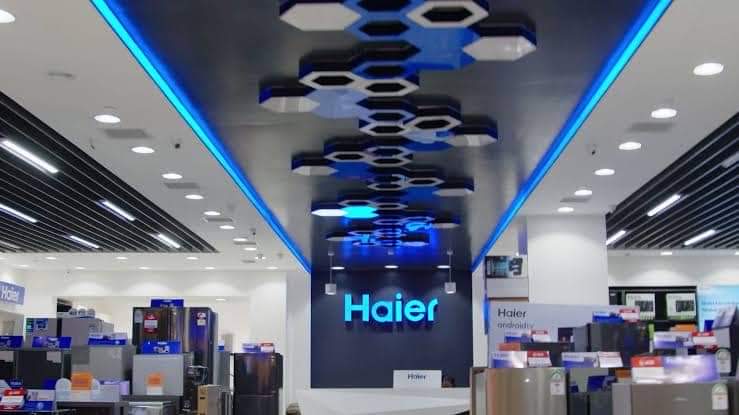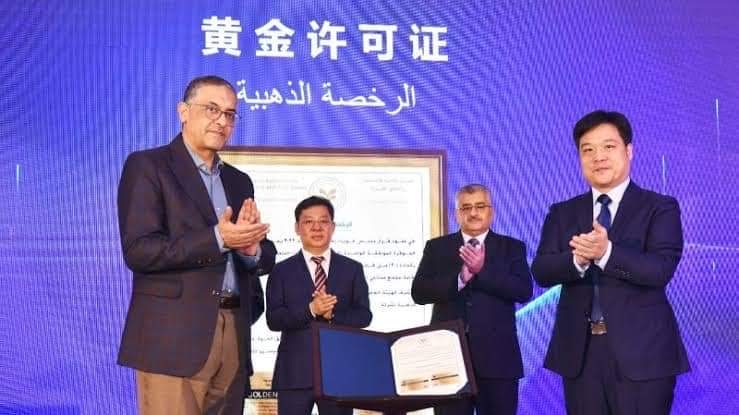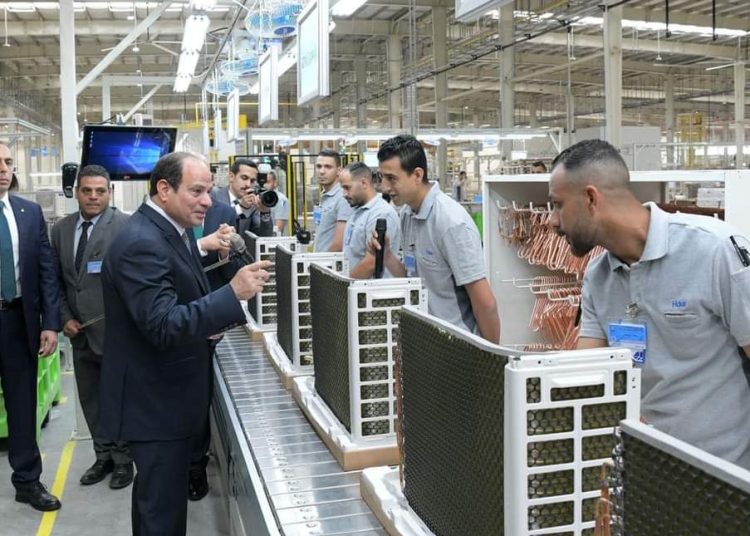Haier Egypt raises local components in final products to 65%
Chinese home appliance giant sends heartening message about local labour, investment climate
Sarah Saad
Haier Egypt’s environment-friendly industrial complex, a giant facility that has been making one success after another in this country, continues to produce some of the finest home appliances and consumer electronics.
The Egyptian Gazette has made a tour of the complex to get a first-hand experience of the company’s plans and aspirations at the local, regional and international levels.
Haier Egypt Factory General Manager, Eng. Ahmed el-Gendy, described the complex as opening the door for Haier’s presence in the Egyptian market.
El-Gendy and his colleagues feel strongly proud of the high percentage of locally-made components that go into the final Haier Egypt products.
For example, he said, almost 65% of the components that go into the making of Haier Egypt’s air conditioners are manufactured locally.
“The same applies to televisions,” el-Gendy told this newspaper.
He cited ongoing research for raising local contribution to all the company’s products to 60%.
Almost 45% of the components of the company’s washing machines, he added, are made here.
“As an achievement, this is a culmination of the efforts made by Haier’s skilled Egyptian workers,” el-Gendy said with a proud look glinting on his face.
He said these workers have proven a unique ability to keep working hard.
El-Gendy noted that the success of the local subsidiary of the Chinese company would never have been possible without the support President Abdel Fattah El Sisi and his administration offer to industrial investors and the industrial sector, in general.
The president and the government, he said, work tirelessly to create an encouraging investment climate and solve the problems of industrial investors.
Work on Haier’s Egyptian factory started in August 2022. The foundation stone of the factory was laid in March 2023. The construction of the factory was complete a year and a half later.
El-Gendy attributes this accelerated achievement to what he described as the ‘wise’ policies and decisions taken by the government to support investments.
 The General Investment Authority granted Haier Egypt the Golden License soon after the factory started operating, a dream coming true for el-Gendy and his colleagues.
The General Investment Authority granted Haier Egypt the Golden License soon after the factory started operating, a dream coming true for el-Gendy and his colleagues.
“The licence demonstrated keenness on the part of the Egyptian state to support serious projects that contribute to the localisation of key industries, the transfer of modern technology, and the increase of local components in final manufactured products,” he said.
He noted that Haier picked Egypt to be the venue of its factory in the region for a large number of reasons, including its geographic location and its possession of important trade corridors and ports.
Egypt is also, he said, party to and a member of a large number of trade agreements and trade blocs, such as the Free Trade Agreement; COMESA; the Arab Free Trade Countries, and BRICS.
The Haier Egypt complex stands on 200,000 square metres of land. The facility consists of six factories, including four factories that are part of its first phase whose construction cost $85 million.
The four factories include one for the manufacture of televisions, another for washing machines, a third for air conditioners, and a fourth for feeding industries.
This first phase of the complex also contains a central air conditioner manufacturing line with an annual production volume of 1 million units.
El-Gendy said 30% of the products of this line go for export, whereas the remaining 70% cover the needs of the local market.
 He highlighted plans within the company for increasing the percentage of local components in the production of the line to 70% in the coming few years, from 60% now.
He highlighted plans within the company for increasing the percentage of local components in the production of the line to 70% in the coming few years, from 60% now.
The second phase of the complex, el-Gendy said,would consist of two factories for the manufacture of freezers and refrigerators.
He revealed that around $50 million would go into the implementation of this phase which will aim to produce over half a million units of these home appliances each year.
The second phase of the complex will also consist of a factory for metal forming, plastic injection and paints.
This factory, el-Gendy said, aims to control the quality of production inputs and ensure the presence of high-quality final productsthat sell in the market for reasonable prices.
Here in the Haier Egypt factory workers toil day and night to answer demand for the factory’s products.
The factory has recently signed several deals for the export of its products to countries like Libya, Jordan, and Kenya.
Around 3,000 people work for the factory, both directly and indirectly. The factory is expected to demand more workers in the coming period, especially in the light of its plans to triple the volume of its production over the next five years.
 “The second phase of the complex will commence production in the second quarter of 2026,” el-Gendy said.
“The second phase of the complex will commence production in the second quarter of 2026,” el-Gendy said.
The government says the opening of the Haier Egypt factory gives insights into Egypt’s pursuit to encourage industrial investors, raise production and reduce unemployment.
Egypt’s unemployment rate fell to 6.9% of the workforce in 2023, down from 13% in 2014, according to Abdel Wahab Khader, the official spokesman of the Ministry of Manpower.






Discussion about this post